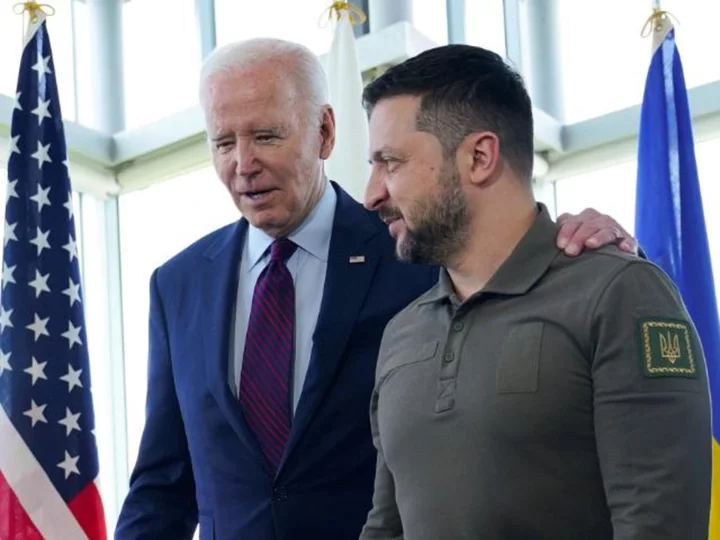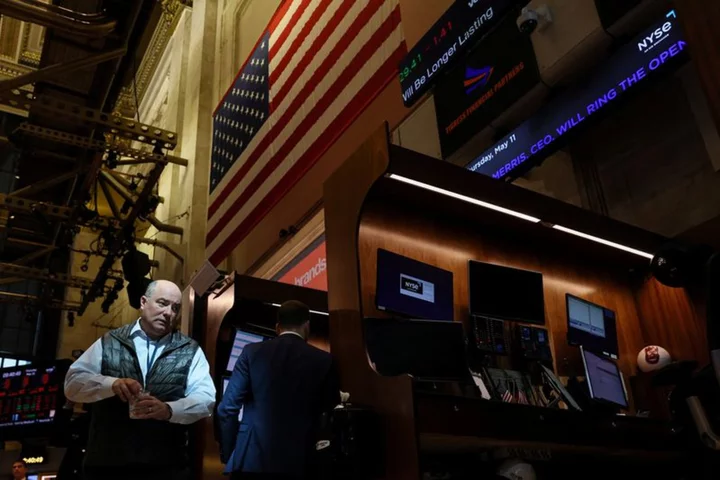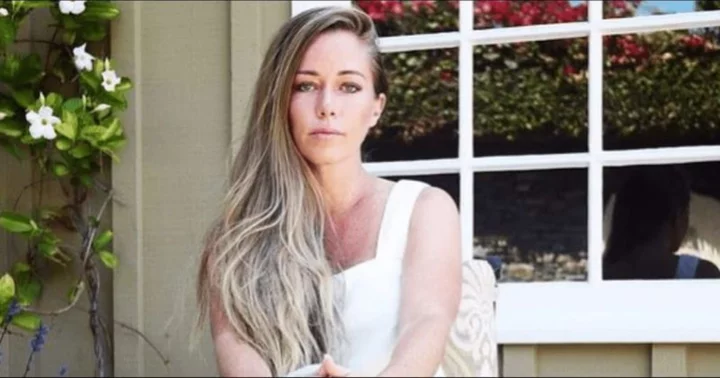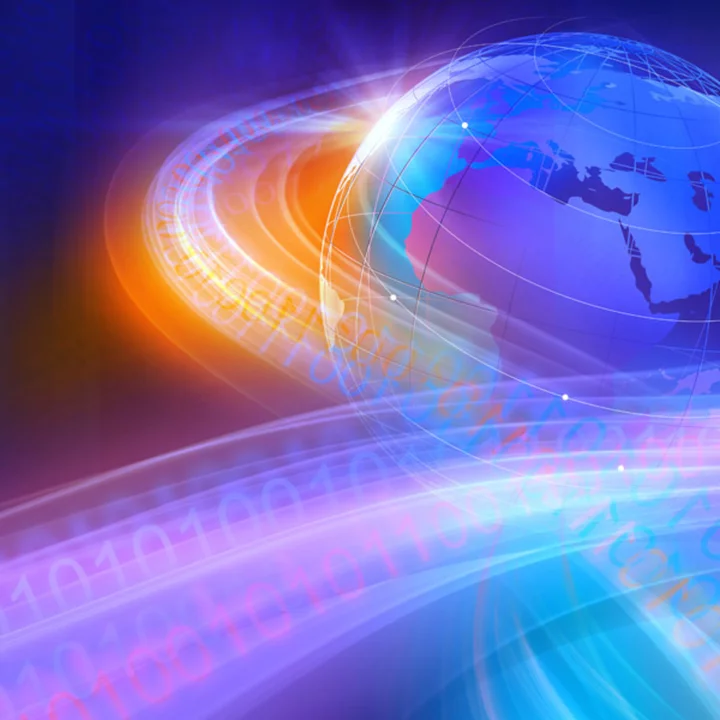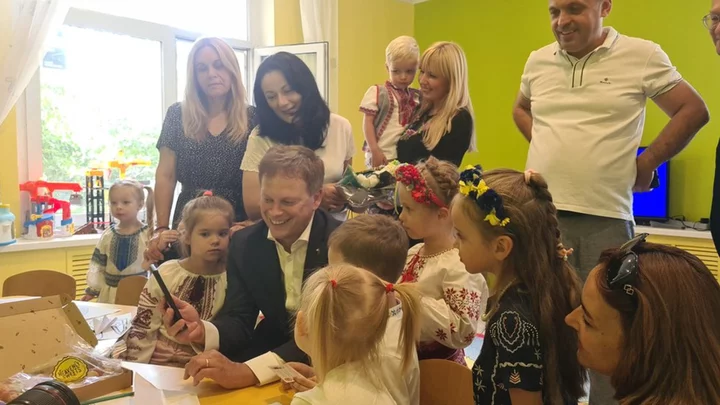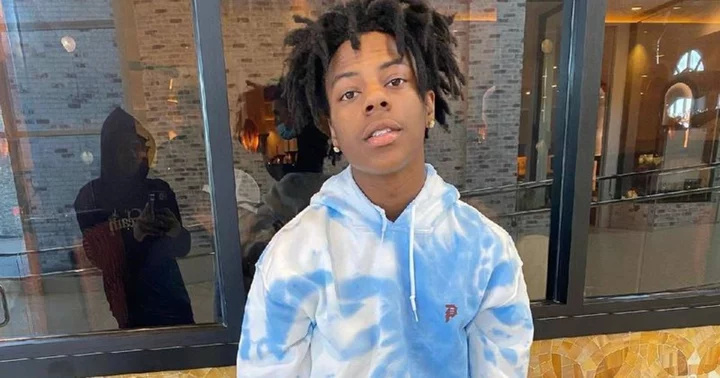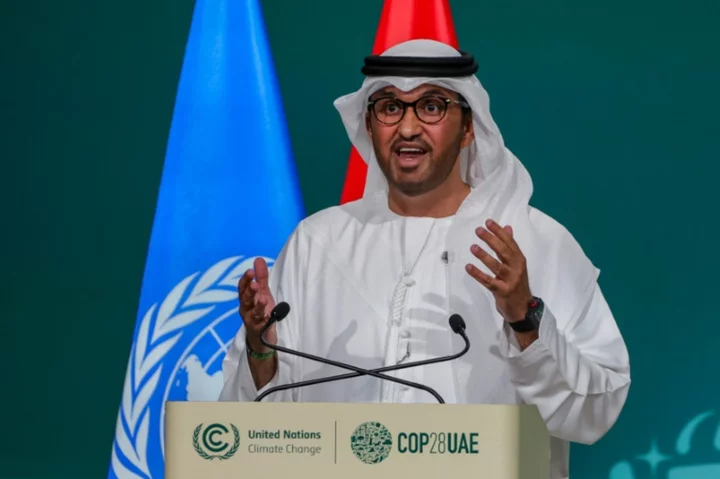President Joe Biden enters day two of the NATO Summit in Vilnius, Lithuania, facing questions about Ukraine's path to becoming a member of the alliance, with concerns from his Ukrainian counterpart on full display and fissures among NATO leaders on the thorny issue.
Ukraine has been a dominant item on the summit's agenda as the US president looks to keep the group united behind President Volodymyr Zelensky in the face of Russia's invasion. While the final communique from the summit does remove one barrier to entry, the Ukrainian president will likely be left looking for more signs of assurances from the allied nations.
While US officials have emphatically said Ukraine will not be joining NATO as a member coming out of this meeting, there are few concrete steps or timelines the group has offered as a significant show of support for the war-torn nation.
Zelensky arrived in Lithuania on Tuesday and will participate in the summit and meet one-on-one with Biden, his attendance a sign of unity that threatens to be overshadowed by a blistering statement he issued while he was on his way to the gathering.
The Ukrainian president said he has "received signals that certain wording is being discussed without Ukraine," emphasizing that the "wording is about the invitation to become NATO member, not about Ukraine's membership."
"It's unprecedented and absurd when time frame is not set neither for the invitation nor for Ukraine's membership. While at the same time vague wording about 'conditions' is added even for inviting Ukraine. It seems there is no readiness neither to invite Ukraine to NATO nor to make it a member of the Alliance," Zelensky said in the statement, issued via tweet, adding, "Uncertainty is weakness. And I will openly discuss this at the summit."
The final communiqué, released Tuesday, is unlikely to provide Zelensky the answers he demands.
While the allies did agree to remove one requirement for Ukrainian entrance to the group -- a Membership Action Plan -- given Kyiv's close relationship with NATO nations, it did not provide a firm timeline for when the Ukrainians will become official members.
NATO allies will invite Ukraine to join the military alliance "when conditions are met," the group's chief, Jens Stoltenberg, said on Tuesday.
That's a view reflected by the man who Zelensky will spend time with on Wednesday.
Biden has emphasized that Ukraine is not ready to enter NATO, telling CNN in an exclusive interview last week that Russia's war in Ukraine needs to end before the alliance can consider adding Kyiv to its ranks.
And as disappointed as Zelensky may be in the final language released by NATO on Tuesday, Biden expressed his full support for it as he spoke with Stoltenberg upon his arrival at the gathering.
"We agree on the language that we proposed, and you proposed, relative to the future of Ukraine being able to join NATO. We're looking for a continued, united NATO," Biden said in brief remarks alongside NATO Secretary General Jens Stoltenberg at the summit site.
New military aid expected for Ukraine
The US is expected to extend support to Ukraine in other ways on Wednesday, however.
Following the conclusion of NATO meetings, Biden and G7 leaders are set to make a "major announcement" with Zelensky on boosting Ukraine's military capabilities, a US official said.
"The United States, along with G7 leaders will announce our intent to help Ukraine build a military that can defend itself and deter a future attack," National Security Council senior director for Europe Amanda Sloat told reporters during a briefing Wednesday.
The announcement will start a process of bilateral negotiations with Kyiv, Sloat said.
There will be a "long-term investment in Ukraine's future force" aimed at "ensuring Ukraine has a sustainable fighting force capable of defending Ukraine now and deterring Russian aggression in the future, a strong and stable economy, and the help Ukraine needs to advance the reform agenda to support the good governance necessary to advance Ukraine's Euro-Atlantic aspirations," she said.
Sloat said the purpose of the declaration would be to bolster Ukraine's deterrence and send a message to Russia.
"We believe the declaration we will announce today seeks to ensure Ukraine's future as a free independent, democratic, and sovereign nation. It signals in joint long-term commitment to building a powerful defensive and deterrence force for Ukraine, of course for both stability and for peace. This multi-lateral declaration will send a significant signal to Russia that time is not on its side," Sloat said.
And while Biden is expected to offer "near and long-term support for Ukraine" during a one-on-one meeting with Zelensky, the issues lingering over Kyiv's accession to NATO could strike a different tone to the two leaders' congratulatory encounters held earlier this year.
Zelensky's first trip outside Ukraine since the war began was to Washington just before Christmas, where he was feted by Biden in the Oval Office before giving a speech to Congress. A couple months later, Biden made a surprise visit to Kyiv to return the favor and announce a half-billion-dollar assistance package. The dramatic scene was marked by air raid sirens going off as the two presidents walked near the gold-domed St. Michael's Cathedral.
Their last in-person meeting took place at the G7 Summit in Hiroshima, Japan, in May. Zelensky used the opportunity to press the world leaders for more assistance, coming just after the Russians took the town of Bakhmut following months of heavy fighting.
The meeting will be draped by a 15-year wait for Ukraine to get answers on just when it can join the allied group. NATO first welcomed Ukraine's membership aspirations during a 2008 meeting in Bucharest, Romania, but little progress has been made and the timeline remains uncertain.
"Ukraine and many NATO allies are calling for a clearer pathway, a roadmap, some kind of statement at Vilnius that will show Ukraine what it needs to do to get into the alliance. And I think that is very important to happen for the alliance to be credible. Given the stakes of the war ... given what the Ukrainians have endured, if we walk out of Vilnius without a firmer sense of what it will take to get Ukraine into the alliance, I worry about the alliance's credibility," said Chris Skaluba, director of the Transatlantic Security Initiative in the Atlantic Council's Scowcroft Center for Strategy and Security.
Biden's 'major address'
Biden and members of his administration have remained committed to the alliance's current "open door" posture.
However, NATO countries in Eastern Europe bordering Ukraine or Russia have made a stronger push for a commitment to extend membership to Ukraine, including providing a more concrete timetable, which has created tension within the alliance leading up to the summit.
As leaders gather, experts are also watching for whether the alliance can offer any additional long-term security assistance to Ukraine, including the possibility of additional F-16 fighter jets and other long-term investments as a key signal to Russia of NATO's long-term support for Ukraine.
Biden and NATO leaders have "unanimously agreed" to send a "substantial" new aid package to Ukraine, Sloat told reporters Wednesday — but she declined to provide additional details.
Biden is also set to give a foreign policy speech that his aides have described as a "major address" later on Wednesday, reflecting on the strength and power of the NATO alliance.
Biden will also discuss "how the widespread support for Ukraine is reflective of the value of our alliances and partnerships, which he has revitalized since taking office," Sloat said, as the president uses the bully pulpit to highlight his foreign policy experience as he seeks a second term.
Biden will "underscore how we have an opportunity at this moment to apply the same unity and sense of purpose and urgency to addressing the other great challenges of our time, including the climate crisis, emerging technologies, upholding the international rules of the road, and expanding opportunities," Sloat said.

